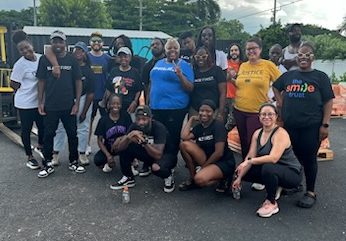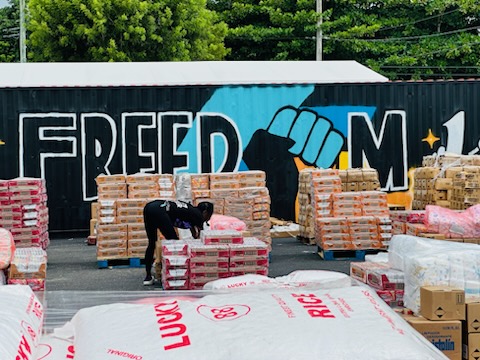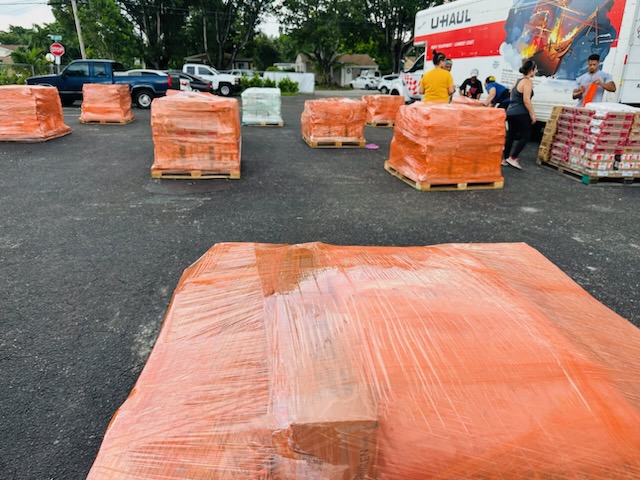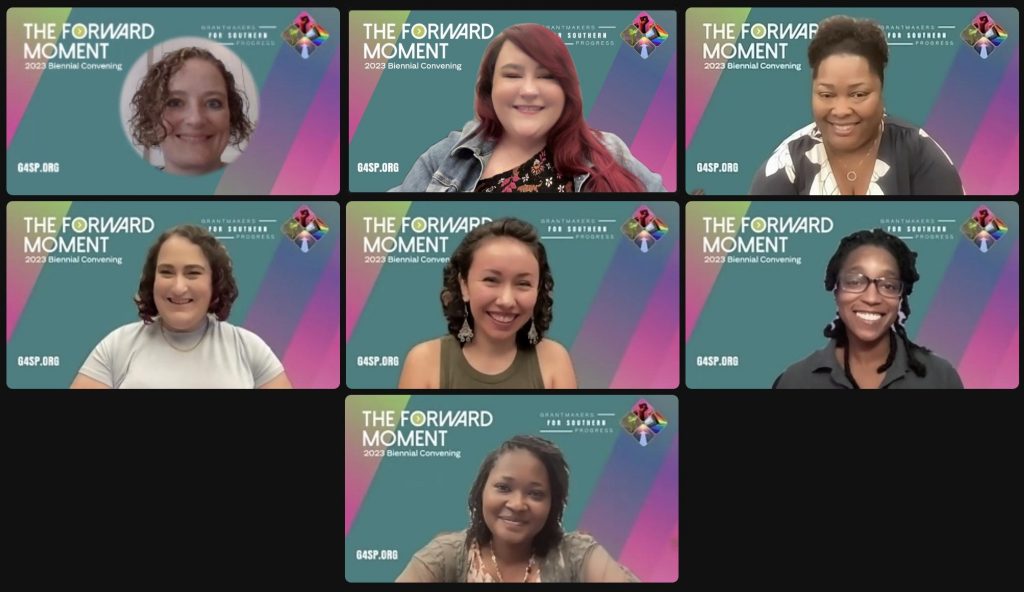Reflections on The Forward Moment
Dear GSP community,
We are grateful to everyone who attended our 2023 Biennial Convening: The Forward Moment. Below are some snapshots of important moments from the convening that uplift our key focus areas of Climate, LGBTQ+, Immigrant, and Criminal Justice. For a full list of resources related to the convening, visit our website: g4sp.org/biennial
Climate Justice
Our team partnered with The Smile Trust and Embassy Suites to redistribute the hotel block and 400 meals we secured for attendees to provide food and shelter to displaced families evacuating during Idalia. With the help of our attendees who donated their rooms for the cause, we did what we call on funders to do every day: identify the people leading the work, provide the resources they need, and get out of our own way so that directly-impacted communities can self-determine and guide the work to meet their needs.
During Centering Black, Brown, and Disabled Communities: Building Community Resilience Against Climate & Environmental Warfare, Valencia Gunder urged funders to support the grassroots in ways that truly count. “What we need are the resources to help us build a security plan. We are working with pennies and moving work across the region,” she said. If impacted communities can push critical work on the ground with little to no funding, imagine what they could do if they were properly resourced instead.”
LGBTQ+ Justice
In The Inherent Queerness of Southern Movement Work, Daroneshia Duncan-Boyd from TAKE Birmingham talked about why we must center health and wellness in the work. “The scarcity model exists in funders’ minds and that forces LGBTQ+ orgs to fight for scraps, even though there’s an abundance mindset among practitioners in the South. Funders often short-change the work based on what they think is needed, even if it’s not what the org needs at that time.” Investing significant dollars is only one aspect of resourcing the work well. Moving with intentionality and ensuring that people’s minds, bodies, and spirits are nourished is something we must also prioritize as funders. Wellness is not a choice, but an imperative in this work. As we care for the South, we must also care for ourselves and each other.
Immigrant Justice
In Funding and Organizing for Immigrant Justice Beyond the Border States, Gigi Pedraza of Latino Community Fund talked about how the South is often seen as the testing ground for anti-immigrant bills, which are then exported to other regions in the country. To build power and realize structural change, we must create opportunities for people to envision a world that doesn’t criminalize their existence. At the same time, we need to resist the temptation to rely on the myth of trickle-down philanthropy, which sees the organizations with the largest operating budgets receiving the most support while smaller organizations, who oftentimes have much deeper impact, struggle to keep the lights on.
Criminal Justice
Panelists urged philanthropy to understand that the Southern context is different than the other regions in the country, which means that we must fundamentally shift how we think about outcomes, wins and losses, to right size them for the South. InFor the People: Redefining Democracy for Black, Brown, Indigenous, and Immigrant Communities Cliff Albright said “Winning 5 seats in NY or CA isn’t the same thing as winning 5 seats in TN…A lot of people think that a traditional loss is somehow a reflection on movement, when it is really just a reflection of the opposition [and their resources].” The argument was clear: we need to be invested in building our infrastructure year-round instead of philanthropy helicoptering into communities, funding short-term Get Out the Vote efforts, and demanding increased labor from Black and Brown organizers, especially when they are most likely to be targeted by right-wing, racist opposition.
In our closing plenary session, The Forward Moment: Moving from Problems to Solutions, Maurice Mitchell of Working Families Party said we have a responsibility, especially in the South, to push back against the myth that the South cannot be transformed for the better. “The idea that we have red and blue states is a myth. If we want to break the cycle of [teetering between democracy and fascism every 4 years], we need to say we want things to be different and move boldly with that vision.”
The Takeaway
We know that strategies that work elsewhere do not always work in the South because of our particular context. We also know that the South is the birthplace of the most transformational and empowering movements the nation has seen. We can build on that legacy by creating our own models for moving the work, but funders need to trust the creativity of movement leaders instead of holding them captive with restrictive funding practices rooted in distrust and the refusal to cede power.
It is crucial for philanthropy to be in deep accountability with community if we want to see the South win. We call on funders to work at the intersections, understand the Southern landscape, build relationships with the folks moving the work, and diversify your funding strategies to support communities long-term.



